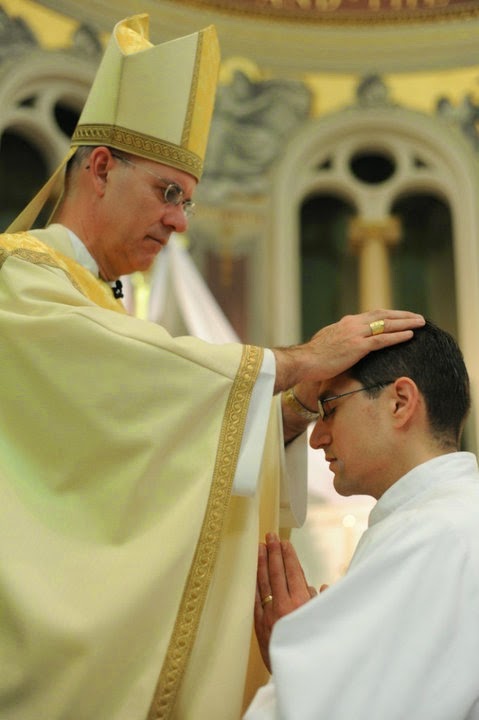The Catholic Church has stated her position on life in the womb with these words from the Universal Catechism: “’Human life is sacred because from its beginning it involvesthe creative action of God…who is its sole end…. [N]o one can under any circumstance claim for himself the right directly to destroy an innocent human being.’” (Paragraph 2258) Despite the historicity of this teaching, some Catholics claim that the Church has not always defended the sanctity of human life in the womb. Today we find that a silent Jesus has something to say to the very people who want to bear His name and, at the same time, deny that human life within the womb has the right to be born.
Turning to the gospel we read, “Mary set out in those days….” What days? This passage immediately follows the Annunciation, when Mary said “Yes” to God. Now, were you to ask Mary on the day of the Annunciation if she planned on becoming pregnant that day or if she wanted to become pregnant that day, the answer would have been, “No.” Yet, regardless of what she planned or what she may have wanted, Mary accepted the Word of the Lord and welcomed the conception of that Word in her womb. Granted, the circumstances of her pregnancy were entirely unlike those many women find themselves in today; nonetheless, Mary demonstrates the appropriate response to an “unplanned” pregnancy: Regardless of how they come to us, children are not objects to be wanted or unwanted; rather, they are gifts of God, to be received as willingly as he receives us.
Continuing, we discover that Mary set out “in haste” to see Elizabeth. This would mean that Jesus would have been anywhere from a few days to a few weeks old in Mary’s womb at the time of her visit. What does Elizabeth, “filled with the Holy Spirit”, declare about this “blob of cells” in Mary’s womb? She proclaims him “Lord!” What is more, Elizabeth declares Mary a “mother”. If Christ were merely a soulless mass of cells and not a human life, how could Mary rightly be called a mother? By the inspiration of the Holy Spirit, then, Saint Luke and Saint Elizabeth declare the personhood of the child in the womb from the earliest stages of pregnancy.
Still people object, saying that women will face poverty and other burdens if they must give birth to an unwanted child. This objection is not without some merit. If we are pro-life, we cannot be pro-fetus only. Both mother and child are human persons who must be afforded the rights of human dignity. Here, again, Mary serves as a model.
Elizabeth was already beyond the age of bearing children when she miraculously became fertile. We can imagine what a toll such a pregnancy might have on her at her age, especially in those days. Mary knew this, too, and wasted no time in offering her loving service to Elizabeth until Saint John was born. She shows us that we must respond “in haste” when we encounter a person who is experiencing difficulties as a result of pregnancy.
Young or old, planned or unplanned, wanted or unwanted, like the Blessed Mother, Christians must be the first to provide what may be lacking in order to help struggling mothers bring their babies to term. We must focus on establishing a quality of life for both a mother and her child before and after she gives birth. We have an obligation to establish, promote, and proclaim a system of justice to which frightened and vulnerable mothers can turn in their time of need. They already know that they can get abortions, and in the absence of a known alternative that communicates real peace and hope, the likelihood that a mother will choose to abort her child can only increase.
Ultimately, we must avoid being misguided and lopsided in our approach to human rights. On the one hand, those who support the rights of the mother, her freedom of conscience, and her right to privacy at the expense of the child in her womb, promote the violation of the most fundamental of all rights, the right to life, which is akin to murder. As we read in the Compendium of Catholic Social Teaching, “The first right…is the right to life, from conception to its natural end, which is the condition for the exercise of all other rights and…implies the illicitness of every form of procured abortion….” (Paragraph 155)
On the other hand, those who raise their voices, join marches, and vote pro-life in an effort to promote the right to life of the unborn, lose credibility and will lose the battle if they fail to provide an adequate alternative that considers the dignity of both persons. Make haste, therefore, and follow Mary’s example. Words alone will not change hearts and minds. Make haste, for in this age, and in these United States, with so much at our disposal, can we be held guiltless for failing to help establish real alternatives to abortion and bring about its extinction?
Friday, April 3, 2009
Subscribe to:
Comments (Atom)
